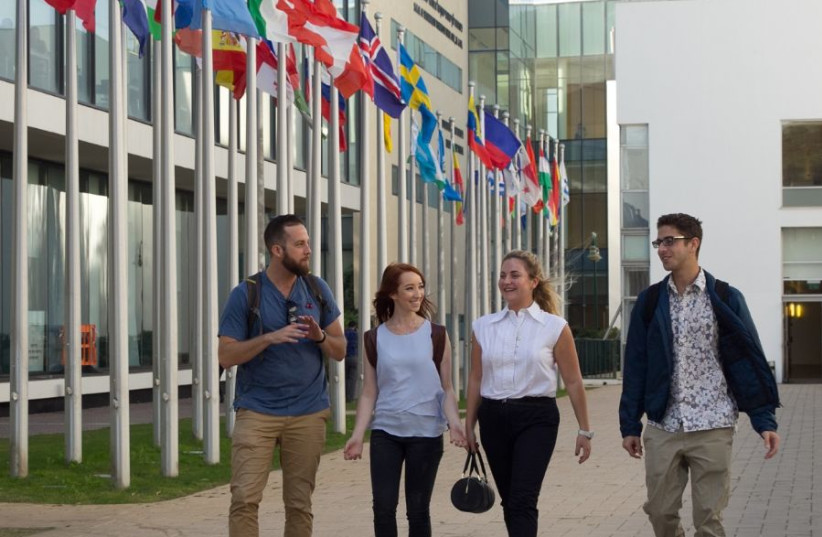Two Reichman University students recently became the first Israelis to compete at the prestigious Oxford University International Intellectual Property Law moot arguing competition.
This year, the competitors debated what should happen if you find that a special butterfly-shaped cake has a low-cost copycat version at the local supermarket?
Copyright, trademark, and other design issues can be implicated and were hotly debated at the competition.
The grand final was judged by Lord Kitchin of the UK High Court of Justice and Lord Justices Arnold and Birss of the Court of Appeal of England and Wales.
Reichman law students Aseel Kasab and Shira Shturman were selected to take part and made it past the initial written phase of the competition.

The moot event took place between March 17 and 19 involving 30 teams competing from around the world.
Kasab is a 25-year-old in the second year of her second degree at Reichman after obtaining a first degree in law and business from Warwick University in England.
She was inspired to study intellectual property law by a lecturer at Warwick, but also by her “family who are authors and write books…there is a lack of protection for intellectual property,” for authors.
In addition, she is excited by the dynamic relationship between humans, ideas and sometimes by ideas having independent value to stand alone beyond how one or another group of humans may use them.
The law student said that she was thrilled to go to Oxford for the competition, an opportunity to return to England, and that the team had gotten past the first round.
Some schools have almost two decades of experience in the competition to hold over the Riechman students, but Kasab said they would make even more progress in the future now that the team got more of a lay of the land.
In a comedic twist, before other Oxford competition participants got to sorting out Kasab’s Israeli-Arab identity, she first had to convince them that their team was not German since they were coming from a university called Reichman.
She said that she was selected by Reichman for her capabilities, rather than her ethnicity and that it was just a “happy coincidence that she was an Arab-Israeli female,” in terms of showcasing diversity and breaking stereotypes.
Shturman said her motivation to participate was “about the future, the future of technology and all startups around the world are built on intellectual property…so you need to protect the intellectual property of the startups.”
She said she was also “very attracted to the idea that it [intellectual property law] is causing developments in constitutional and international law versus, for example, criminal law, which is very localized and doesn’t change,” as much, noting she wanted to be “in the most innovative place.”
In addition, she said it was a historic achievement for them and for Reichman to be the first Israelis in the competition and who made it past the eight-month-long tough written round as well as being one of the only teams solely composed of women.
Finally, she said it was very special to be with such preeminent judges, scholars and other talented students.
Ariel Dubinsky, the owner of Ariel Dubinsky and co. coached the Israeli team along with Dr. Aviv Gaon of the Reichman University.
Dubinsky said, "The students demonstrated their command of international copyright law, designs, and geographical indication. Having the opportunity to witness the superb teamwork, dedication, and passion of these outstanding mooters throughout the entire process has been a true privilege and a very interesting learning experience.”
